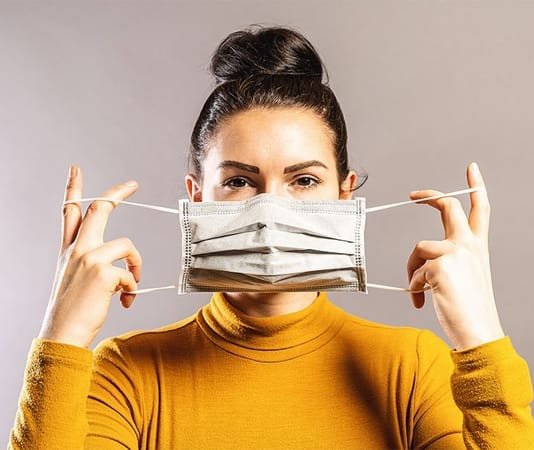
The coronavirus disease 2019 is virtually in everyone’s lips as the world is trying to grapple with its devastating effects. It has affected not only the health care system but every sector of the economy. In our efforts to keep the virus at bay, we have made sudden and extreme changes in our social lives.
Thus far, the coronavirus is responsible for infecting millions of people worldwide and has claimed thousands of lives.
For the past few months, nearly every urgent care center has been busier than usual, dealing with patients suffering from COVID-19.
Sars-Cov-2, in a Nutshell
First identified in Wuhan Province, SARS-CoV-2, is the official name given to the type of coronavirus responsible for causing the coronavirus disease 2019.
Other types of coronaviruses also cause severe Acute Respiratory Syndrome (SARS) and Middle East Respiratory Syndrome (MERS). Primarily, we have been treating many patients yearly in our urgent care in Katy, TX, because of common colds that have been caused by the other mild types of coronaviruses.
SARS-CoV-2 is one of the seven types of coronaviruses.
Symptoms of COVID-19
With each passing day, doctors see different facets of the coronavirus. As of now, we are certain that some people will not exhibit symptoms (asymptomatic). The symptoms may take two days or fourteen days to manifest.
However, if you experience the following common symptoms of COVID-19, make sure that you call our doctor at Preferred Urgent Care in Katy:
- Shortness of breath
- Fatigue
- A cough that becomes severe over time
- A low-grade fever that gradually increases
Other than that, you might also experience less common symptoms, such as:
- Repeated shaking with chills
- Chills
- Headaches
- Sore throat
- Loss of smell
- Loss of taste
- Muscle aches and pains
However, you need immediate medical assistance from our urgent care clinic near you if you experience the following symptoms:
- Blue face or lips
- Confusion
- Trouble breathing
- Persistent pressure or pain in the chest
- Excessive drowsiness
How Does COVID-19 Spread?
Primarily, the virus is known to spread from person to person. Since the coronavirus is a respiratory disease, it multiplies in the airways and the lung cells. This manifests in the spit and saliva of the infected person.
If an infected person coughs or sneezes, they release droplets into the air, which can travel up to two meters. If you are close to the infected person, then you inhale the droplets you can get infected.
If you meet someone who is infected and touched their mouth or nose, and you happen to shake hands, the virus will be transferred to your hands. If you accidentally touch your mouth and nose before thoroughly washing your hands, the virus will enter your body.
The virus is also known to stick on surfaces for some time before it dies. It sticks on certain surfaces longer than others and can survive up to 3 days on specific surfaces. For instance, it can last for 24 hours on cardboard and three days on steel and plastic.
If you touch the contaminated surfaces, then you touch your face, mouth, or nose, then you will get infected.
It is essential to note that the virus can also survive in the air for up to three hours in the tiny droplets.
How to Protect Yourself and Others
It is challenging to protect yourself and others if people always surround you. However, there are several ways that you can protect yourself:
- Wash your hands regularly after you touch surfaces.
- Use alcohol-based sanitizers if you are unable to find soap and water.
- Avoid touching your face after touching surfaces
- Avoid groups and practice social distancing to help avoid being exposed
- Cover your nose and mouth with a mask when you are going to public places
Antibody Testing
You might have heard of antibody testing by now all over the news. When you decide to come for COVID-19 antibody testing at our urgent care near you, it is essential to know what the fuss is all about.
Antibody tests are designed to check for past SARS-CoV-2 infections. This is the virus responsible for causing COVID-19. When your body is fighting off infections, it releases specific antibodies that protect against the disease if exposed to it again.
Since antibodies are disease-specific, they can are used to tell whether you have been infected and have recovered from COVID-19. The test is not designed to diagnose if you have COVID-19 since it can take up to 12 days for the body to produce enough antibodies that can be detected in the test.
If the result comes back positive, it means that you were infected with the virus and fully recovered. If you get a negative result, you have not been infected before, or your body is still producing antibodies to fight off the infection.
Regardless of the results, you still have to take the precautionary steps to ensure that you do not spread the virus or get infected. Whatever results you get, talking to our health care professionals at Preferred Urgent Care in Katy will help you in a significant way.
